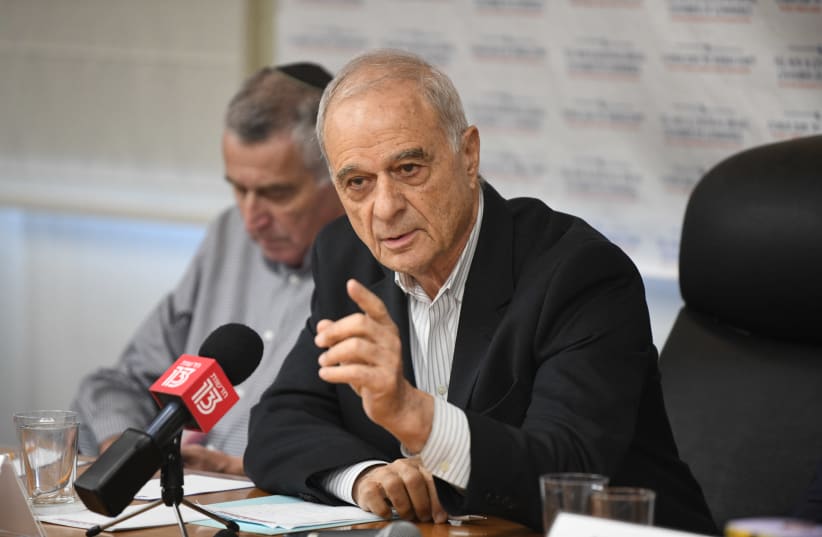As judicial reform negotiation talks continued to develop over Wednesday, Likud party stalwart Uriel Lynn published his own legal overhaul outline as a proposal, which among other ideas suggested Israel's president also be the president of the Judicial Selection Committee.
Lynn, currently the president of the Federation of the Israeli Chambers of Commerce and formerly the chairman of the Constitution, Law and Justice Committee, said that the outline wasn't one of compromise, but based on his legislative experience would benefit all political factions.
Like President Isaac Herzog's own outline, the people's directive, the new outline proposes eleven Judicial Selection Committee panelists, the High Court Justice president, two other justices, one coalition MK and two opposition MKS, three ministers and two jurist public representatives. However, Lynn proposed that for High Court appointees, the state president should serve as the committee chairperson, and the candidates be subjected to a public hearing.
Completion of the Israeli constitution
As with many of the other outside outline proposals, Lynn's plan calls for the completion of the Israeli constitution, assembling a list of Basic Laws into a formal document - though excluding ones that are designed to solve coalition or personal problems. It would also give Basic Laws normative supremacy, and a special method for passing Basic Laws. They would also be immune from judicial review, which was one of the first reform provisions forwarded by the coalition.
The High Court would retain judicial review for normal legislation under Lynn's plan, but the Knesset would have an 67 MK majority override clause.
Lynn proposed that officials not be obligated to accept the opinions of government legal advisers, which would not be legally binding. He also proposed that the Reasonableness Clause not apply to policy or general law, but would still apply to individual people and institutions.
The former Likud MK also proposed that there be term limits for prime ministers. Israeli leaders would not be able to serve more than two full terms in office.

